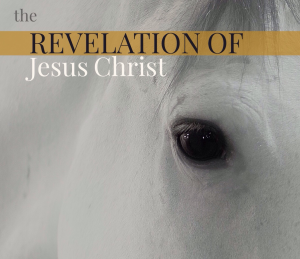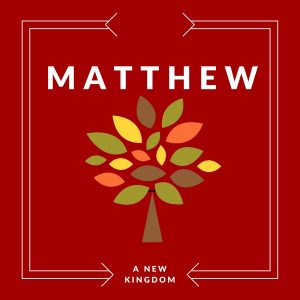Chapter 13 begins with YHWH instructing Moses to send out one person from each tribe of Israel to go scope out the land. We are told in v. 17 that they are to validate whether there are folks in the land, whether the are strong or weak, whether the land is good or bad, whether the folks live in cities or camps, and the state of the forests. We get more detail in Deuteronomy chapter 1, where it seems as though the people had asked Moses to send some fellas to spy out the place to confirm the right tactical way to make their way into the land. The LORD is gracious here, He agrees and tells Moses to let it happen. They will see with their own eyes what YHWH has been telling them of this land of milk and honey.
So, fellas from each tribe are selected. They are not the same as the heads of the tribes ,which probably makes sense as this is work for younger legs and stronger lungs, this spying about. Also, it’s a decent trek, 250 miles south to north, plus the weight of the evidence of the fruits of the land that they are supposed to bring back. It’s the first grape harvest so we’re looking at the end of July, two months after they left Mt. Sinai. From Sinai to Paran was an 11 day journey normally, Apparently hauling a massive group of Israelites in that span, plus stopping to tussle with the Lord over quail, must have delayed them.
It’d be wise to dig on a map to understand the nature of the route but, in general, the spies do what Moses told them to. The go from the Negeb (dry, desert like place) up into the hill country, of which the largest town is Hebron. Hebron is significant in the life Abraham as it is near there that God first tells him that he will inherit the land. It’s also where he buys the land to bury his wife, and subsequently, it’s where he and Isaac and Jacob are buried. We’re also told that the descendants of Anak are there (of which no additional detail is given. However, the word translates as “giant”, “neck” or “necklace” which at least gives the connotation that these are substantial fellas). In the Valley of Eschol, north of Hebron, they find some grapes and abscond with them. They also grab pomegranates and figs to take back to the group.
They make it 40 days, all the way up and back, and arrive back to provide the report. This is where things go awry. First, they confirm that it is indeed flowing with milk and honey. This is as we expect it to be as it is what God had described. But then the report of the rest of the land is one that lacks the persistence of God’s promises to this people. They report that the cities are strong, well-fortified, and that there are tons of people (likely in the context of there being a lot of people to defend the land). Plus, they saw the descendents of Anak (the big neck folks), as well as the Amalekites in the Negeb, the Jebusites in the Jerusalem area, the Hittites in Hebron, and the Amorites also in the hill country. And that doesn’t include the Canaanites, who lived mostly on the coast and in the valleys. Basically, this land is chock full of folks. They seem to have expected to investigate and find an open land where they could just plop their camp down. This seems foolish, given that the original promise to Abraham was obviously made during a time when these lands were already well populated.
Caleb, one of the spies, tries to calm everyone down and insists that these realities can be overcome. Certainly, we should see this as testament to Caleb believing that YHWH was faithful and able to assure a victorious outcome, not a boast in their own particular ability. In fact, when YHWH talks about milk and honey, he often includes the notion of Him delivering the land over to them:
Exodus 3:8 So I have come down to rescue them from the hand of the Egyptians and to bring them up out of that land into a good and spacious land, a land flowing with milk and honey—the home of the Canaanites, Hittites, Amorites, Perizzites, Hivites and Jebusites.
Leviticus 20:24 – 24 But I said to you, “You will possess their land; I will give it to you as an inheritance, a land flowing with milk and honey.” I am the Lord your God, who has set you apart from the nations.
In fact, in Exodus 33 YHWH says this, “3 Go up to the land flowing with milk and honey. But I will not go with you, because you are a stiff-necked people and I might destroy you on the way.” And Moses refuses to go forward with the presence of God, basically saying that if YHWH doesn’t go, they will not make it.
So broadly, God said the land was good and that was confirmed. They saw a bunch of folks occupying the land, which wasn’t a surprise at all. But now, after all they have seen, they doubt the goodness and faithfulness of God to keep His promises. Caleb’s attempt to reorient them fails miserably as the rest of the spies protest that they are absolutely not able to overpower the inhabitants of the land. Then we are told that the dissenting spies bring a “bad report” about the land, which we most likely should read as a way of saying they are lying about the land to prove their case.
These spies say that the land devours it’s inhabitants (meaning they die because of the hostile environment). We know this isn’t true, they brought back bunches of grapes and figs and such. The Negeb is a rough spot, but everywhere else seems to be fine. They already said it was flowing with milk and honey! Further, the claim that there are giants in the land, those who are so big that the spies were like grasshoppers to them. They go as far as to say that they were the Nephilim (Genesis 6, mighty men of valor, certainly very large if nothing else). This is certainly hyperbole, but that’s kind of the point. They were trying dissuade the people from going into the land so they are reaching for these fantastic images to scare them.
Here’s what we’re faced with. The land was good as God said it would be. The land was occupied, as God knew it was. t’s true that the Israelites were outnumbered and it was a big area with multiple clans of folk in different geographical areas they would have to get through. Yes, certainly. And from a human level, their hesitation is understandable and the caution reasonable. However, they knew, they freakin’ knew already that God was more than capable of delivering this land that He promised. They’d seen it time and time and time and time again. With their own eyes, tasted with their own mouths, felt the leading hand of the pillar of fire on their own skin. They know that YHWH is faithful and good and mighty. And all it takes is a few wild-eyed humans, faithless and fearful, to turn the world upside down, to causes us to doubt the veracity of God’s character. That is exactly what will happen to the Israelites.

